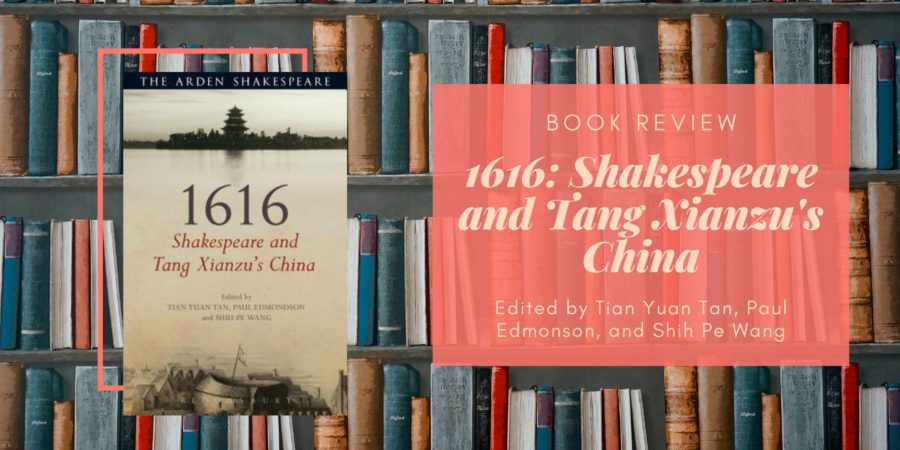A while back, the In Our Time podcast made an episode on Li Bai and Du Fu, two very famous Chinese poets. One of the guests was Tian Yuan Tan, whose accent sounded rather familiar – and then it hit me, he was from Singapore! So I looked up his work and saw a book that he edited called 1616: Shakespeare and Tang Xianzu’s China. It sounded interesting, so I decided to give it a go!
As the title indicates, the book is about the literary culture in Shakespeare’s England and Tang Xianzu’s China, focused around the year 1616. Why the title doesn’t say “Shakespeare’s England” instead of just “Shakespeare” is a minor mystery to me. There are ten topics in this book, with an essay on England and an essay on China for each topic. The content covered in this book includes:
- History as the source material for plays
- The state and the theatre
- Music and performances
- Theory across genres and cultures
As you can see, it’s a pretty broad range of topics, though ultimately, everything focuses on plays.
The introduction to this collection of essays raised my hopes, because as Tan notes, “these essays are meant to speak to one another” and I was interested to see what a comparison of these two cultures might bring forth. However, the essays seemed to be written in isolation, and it was often difficult to see where the point of comparison might be. Janet Clare’s paper “Licensing the King’s Men: From court revels to public performance” stands out as an essay that actually references the partner essay on their shared topic of ‘State and Theatre’. Perhaps an academic reader might be able to draw the comparisons more easily – for a layperson like myself, the papers did not seem like dialogues.
Another point for general readers like me to note: the essays here seem to presume the reader already has some basic knowledge of Shakespeare’s England and Tang Xianzu’s China. While each essay seeks to illuminate one specific aspect of society, I often found myself getting lost trying to understand what was going on.
All that said, I did learn quite a bit from this book. I particularly liked the essay by Ayling Wang, which used The Crying Phoenix to talk about the dramatisation of contemporary political affairs in late Ming China. I was not familiar with the history being dramatised in this play, but there was enough explanation for me to follow along. I also really enjoyed Jason Scott-Warren’s essay on the printing of Shakespeare’s works and how it can be difficult to classify something as literary or non-literary using our modern sensibilities.
Overall, 1616: Shakespeare and Tang Xianzu’s China is an interesting book, but is one that I think will appeal more to the reader who’s already familiar with at least one of the topics and is looking to further their understanding by looking at a different culture.
Featured Image: Photo from Canva

This unfortunately sounds like a more specialist read, something that will add a lot for those who already know about the subject, but not so much for those new to it
Haha yeah, I learnt a lot but I’m sure I would have learnt more if I read this while still familiar with Shakespeare!